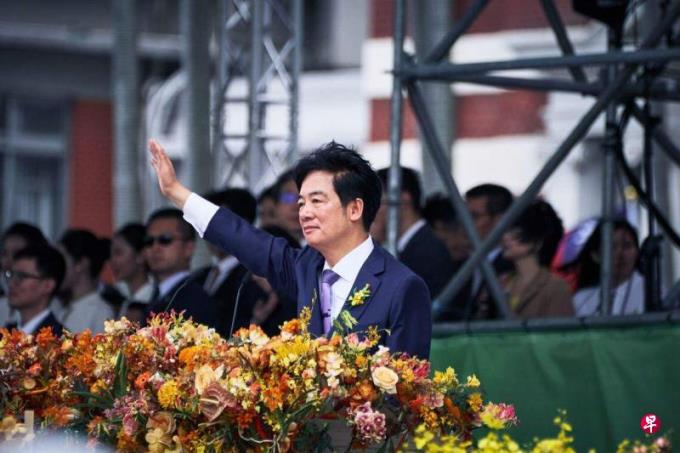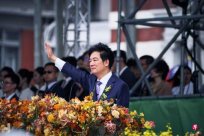
Taiwan pro-blue polls show that more than half of the Taiwanese people are right.The new president Lai Qingde's inaugural speech was satisfied.
According to Taiwan TVBS News Network, the latest polls announced on Monday (May 27), the TVBS poll center, shows that 52%Compared with Tsai Ing -wen's first inauguration speech before 2016, the proportion was slightly lower than seven percentage points.
Further investigation shows that 53%of the people are satisfied with Lai Qingde's inauguration content, 28%are not satisfied, and 19%have no opinion.Compared with Tsai Ing -wen's first inauguration, 68%of the people were satisfied at the time, showing that the public's satisfaction with Lai Qingde's inauguration speech was lower than that of Tsai Ing -wen.
The polls also show that 47%of the people expressed their trust in Lai Qingde, of which 23%are very trusting and 24%trust; 34%do not trust, 16%of them are not very trustworthy, 18%are not trusted, and 18%are not trustworthy.20%no opinion.
In an inauguration speech published on May 20, Lai Qingde reiterated the "four persistence" of the Cai Yingwen government and based on the constitution of the Republic of China.", Further emphasized" whether it is the Republic of China, Taiwan, Taiwan, or Taiwan, it is the name of our country or international friends. "
Lai Qingde's speech was identified by mainland China as "Taiwan independence", publicly promoting the "new country theory", prompting mainland China to launch a large -scale fence around the Taiwan Strait for two days from May 23 on May 23.Military exercise.
TVBS polls show that 64%of the public support Lai Qingde's saying on "cross -strait do not belong to each other." 22%does not support, 14%have no opinion, showing that most Taiwanese people recognize Lai Qingde's inauguration content.
This survey was surveyed by the TVBS Public Opinion Survey Center to conduct a survey of dual -bottom volume of the phone and mobile phone in the city.At the level of confidence, the sampling error is within 3.2 percentage points.



